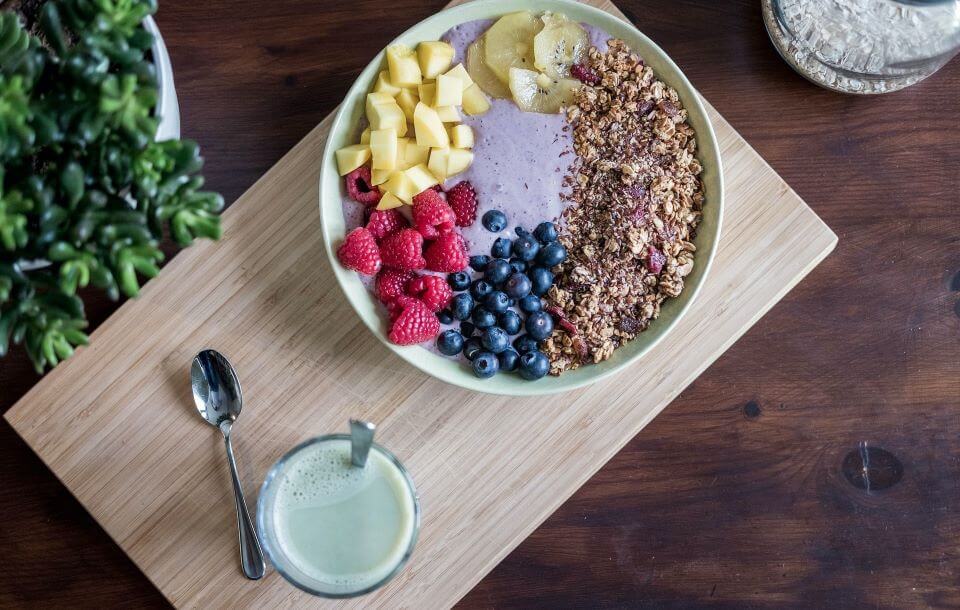The Pros and Cons of Discipline
Discipline is a skill that can make you a Superstar. Period. So, what are the Pros and Cons of Discipline?Weren´t then it reasonable to know about it more deeply??
Conscious Discipline can help you to direct yourself, manage your feelings, and your actions, so you can achieve your dreams while doing your duties.
That is why discipline is often linked to success, happiness, and self-growth…
But is discipline always a good thing? Does it have any downsides or limits? Is there such a thing as too much of a good thing?
In this blog post, we are going to explore the good, the bad, and the ugly of discipline, and how you can find the sweet spot for yourself. We will also give you some tips and tricks to help you boost your discipline and use it wisely.
By the end of this post, I hope you will have a better idea about how to better implement discipline into your life, get the most out of yourself anytime, and show the world the best version of yourself.
…in other words, the MISSION here at wannabethebest.me!!
Let’s dive in!
Key Takeaways
| Discipline is the skill to control and manage your urges, emotions, and actions to follow certain standards, rules, or principles. |
| Discipline can come from yourself or from others, depending on who sets the standards, rules, or principles. |
| Discipline can have positive and negative impacts on different parts of our lives, such as education, work, and health. |
| Discipline can help us to concentrate, achieve, and excel, but it can also stop us from exploring, enjoying, and relaxing. |
| Discipline can create a safe, orderly, and productive environment, but it can also create a stressful, oppressive, and punitive environment. |
| Discipline can improve our well-being, happiness, and satisfaction, but it can also damage our health, mood, and self-esteem. |
| Discipline can be a useful and powerful tool, but it can also be a dangerous and harmful weapon. |
| Discipline can be a friend or a foe, depending on how we use it, balance it, and apply it. |
The D Word
Ok then, Let’s talk about discipline. No, not the kind that involves spanking, scolding, or sending someone to the corner. 😅 The kind that helps you instead achieve your goals, improve your skills, and live a healthy life.
But what is discipline, really? And why do we need it?
And most importantly, How can we have discipline without losing our freedom, creativity, and happiness?
The Meaning of Discipline
Discipline has two meanings, depending on how you look at it.
One meaning is the ability to control your impulses, emotions, and actions to follow certain standards, rules, goals or principles.
The other meaning is the methods or practices that are used to teach or enforce those standards, rules, or principles.
Discipline can come from yourself or from others, depending on who sets the standards, rules, or principles.
Self-discipline is the discipline that comes from within, based on your own values, beliefs, and goals. Self-discipline is often driven by inner motivation, which means doing something because you want to, not because you have to.
Self-discipline is normally the one that can help you to pursue your dreams, overcome obstacles, and reach your full potential…that´s why it is the most popular one…

But believe me, you will learn that often you cannot swallow it all alone….
That is why it is imperative for you to Know Yourself. But this is not enough : YOU HAVE TO UNDERSTAND YOURSELF, and the particular way you function.
(Here is an article by misterindependent.com with some more hints regarding Self-discipline…)
Instead, external discipline is the discipline that comes from outside, based on the expectations, demands, or requirements of others, or maybe a team.
Or the agenda of a group of people you adhere with, your work-team, sport-team, association…you name it..
External discipline is often driven by outer motivation, which means doing something to avoid trouble or get rewards.
As an example, external discipline can help you to fit in with society, follow rules and regulations, but also be accountable in doing your own duties and responsibilities.
Both types of discipline have their advantages and disadvantages, depending on the situation, the goal, and the person.
Let’s see some together in different areas of life.
How Discipline Can Make You Laugh or Cry in Education 🤣😭
Education is one of those places where discipline is everywhere, both for teachers and students. Discipline in education can have some awesome and some awful effects on learning, growth, and even your psycological well-being.
The Good Stuff 👍
Discipline is needed to help students focus on their studies, ignore distractions, and organize their time well.
Discipline can also help students to develop good study habits, such as making goals, planning ahead, and revising often. (Or as I like to call them, the three R’s: Resolve, Ready, and Repeat.) 📚
On the other hand, Discipline can help teachers to create a safe, orderly, and productive learning environment, where students can pay attention, join in, and cooperate.
Discipline also helps teachers themselves to maintain high standards, expectations, and quality of education. (Or as I like to call them, the three E’s: Enforce, Encourage, and Evaluate.) 🏆
(Here is an interesting post by steamclassrooms.com about the role a teacher should have in helping childreen or any student define her own personal concept of discipline, and learn to behave consequently. Nice read indeed…)
Discipline can help students and teachers to achieve academic excellence, by creating a culture of hard work, perseverance, and excellence (…and if you learn this only my friend, then YOU MADE IT!).
And, Discipline is the key for everybody to evolve, acquire useful skills and knowledge, and prepare for future challenges and opportunities. (Or as I like to call them, the three S’s: Study, Strive, and Succeed.) 🚀
The Bad Stuff 👎
Discipline can limit students’ creativity, curiosity, and independence, by imposing strict rules, limits, and structures.
Discipline can also suppress students’ individuality, diversity, and expression, by making them follow a uniform system, curriculum, and assessment withoud doubts or questions.. (Or as I like to call them, the three C’s: Conform, Comply, and Cram.) 😴
Discipline can create a stressful, oppressive, and punitive learning environment, where students can feel nervous, scared, and angry.
Discipline can also damage the relationship between students and teachers, by creating a power gap, distrust, and conflict. (Or as I like to call them, the three F’s: Fear, Frustration, and Fight.) 😡
Discipline can lead to academic burnout, by putting too much pressure, workload, and competition on students and teachers.
The exasperating burden that Discipline can have can sometimes even lead to academic dishonesty, enticing students and teachers to cheat, copy or falsify their work to meet expectations or requirements. (Or as I like to call them, the three B’s: Breakdown, Bluff, and Busted.) 😱

How Discipline Can Be a Blessing or a Curse at Work
We all heard how discipline is important at work. Whether you are an employee or an employer, discipline can be your best friend or your worst enemy, depending on how you use it.
Pros
Discipline can be a blessing at work, as long as you use it smartly…
Here are some of the perks of discipline for employees and employers:
- Discipline can help you get things done, on time and with quality. No more procrastination, distractions, or excuses. Just focus, action, and results (and maybe even some coffee too!). ☕
- Discipline can help you grow, learn, and improve. By challenging yourself, seeking feedback, and taking courses, you can expand your skills, knowledge, and competencies, and become a better version of yourself.(Or at least a more qualified one!). 🎓
- Your discipline practices can help you earn respect, recognition, and rewards. By following the rules, policies, and procedures, you can show your excellence, integrity, and loyalty, and score points with your boss, colleagues, and clients…and who knows, maybe get a raise, a promotion, or a bonus!! 💰
- Discipline can help you achieve your goals as well as contribute to the organization’s success. By aligning your vision, mission, and values with those of the organization, you can work towards a common purpose, and create a positive impact. And maybe change the world, or at least your industry… 🌎
- Discipline can help you create a great work culture, where you can collaborate, communicate, and support each other. A healty practice of Discipline boosts other values, such as being respectful, courteous, and helpful. Here is how you build trust, rapport, and friendship with your coworkers. And maybe have some fun, laughs, and drinks. 🍻
Cons
Discipline can be a curse at work, if you abuse it or misuse it.
Here are instead some of the pitfalls of discipline you could smash your face against along the way: :
- Discipline can limit your creativity, innovation, and initiative. By sticking to the same routine, methods, and solutions, you could miss out on new opportunities, ideas, and possibilities. And maybe become a robot, a clone, or just bored to death… 🤖
- Discipline can be really exausthing, lower your motivation, engagement, and satisfaction. By giving up much your “freedom” (lazyness??), choice, and empowerment, you can feel bored, frustrated, and unhappy. And maybe quit, rebel, or complain. 😠
- Discipline can create a stressful, rigid, and bureaucratic work environment, where you can feel controlled, monitored, and pressured. By imposing or facing excessive demands, expectations, and standards, you can experience anxiety, burnout, and resentment. And maybe snap, cry, or explode. 😭
- Discipline can be misunderstood, applied not wisely and cause conflict, disagreements, and disputes. By being too strict, harsh, or somehow unfair, you can damage the trust, respect, and rapport with your coworkers. And maybe fight, argue, or sue. 😡

How Discipline Can Make You Healthy or Unhealthy
Health is another area where discipline plays a big role, both for ourselves and others. Discipline in health can affect our physical, mental, and emotional well-being, in good or bad ways.
The Yeah-Yes!!
Discipline can make you healthy, again if you practice it smartly. Here are some of the benefits of discipline for your health:
- Discipline can help you maintain a healthy lifestyle, by eating well, exercising, and sleeping enough. No more junk food, couch potato, or insomnia!! :)). Just nourishment, movement, and rest. (…And maybe some cheat days, Netflix, and Naps!!! 🍕)
- Discipline can help you prevent or treat various health issues, by following your doctor’s advice in case you have any, taking your medications, and undergoing your therapies. No more ignoring, avoiding, or denying. Just awareness, acceptance, and action.
- Discipline can help you boost your self-esteem, self-confidence, and self-image, by enhancing your appearance, fitness, and performance. No more insecurity, doubt, or criticism. Just appreciation, trust and pride… and maybe some selfies, compliments, and likes :)). 🤳
- Discipline can help you increase your happiness, joy, and gratitude, by cultivating positive habits, such as meditation, mindfulness, and gratitude. No more negativity, stress, or complaints. Just positivity, calmness, and vision. And what about some smiles, hugs, and chocolate??? 😊

The NO-NOs…
Discipline can make you unhealthy if you practice it obsessively.
Some of the drawbacks of discipline for your health:
- Discipline can make you obsessed, rigid, and extreme, by following a strict, inflexible, and unrealistic regimen. No more balance, variety, or fun. Just rules, restrictions, and punishments.
- Discipline can make you guilty, ashamed, and depressed, by judging yourself harshly, comparing yourself with others, and feeling inadequate or unworthy (refuse that : YOU ARE UNIQUE!). No more compassion, kindness, or forgiveness. Just blame, envy, and regret.
- Discipline can create a toxic, unhealthy, and harmful lifestyle, where you neglect your needs, wants, and preferences. No more self-care, self-love, or self-respect. Just self-sacrifice, self-hate, or self-abuse.
- Discipline can lead to health problems, by also causing physical injuries, illnesses, and complications, due to overexertion, undersized nutrition (Yeah, that is how you should get results faster, right?), or medication abuse. No more wellness, vitality, or recovery. Just pain. And then perhaps some hospital, surgery, or even funeral… 💀
The Ups and Downs of Discipline in Relationships 😍😢
Relationships are another common area where some form of discipline is also applied, both by ourselves and others. And that kind of Discipline in relationships can have some sweet and some sour effects on our love, friendship, and family.
(What about the role of discipline in the family? : I wrote a full article on the subject, you only have to follow the link!
The Ups 👆
Discipline can help us to keep a healthy relationship, by respecting, trusting, and supporting our partner, friend, or family member (yes, this is also a form of discipline itself). Discipline can also help us to boost our relationship, by effectively communicating, listening, and compromising with our partner, friend, or family member.
Discipline can help us in our intimacy issues, Or enchance our level of affection and connection, Pay close attention about how you create a positive environment to express feelings, needs, and desires, and fulfilling those of our partner, friend, or family member. (Or as I like to call them, the three L’s: Love, Like, and Laugh.) 💕
Discipline can help us to achieve our relationship goals, by working together, collaborating, and cooperating with our partner, friend, or family member. And more importantly, Discipline can also help us to overcome our relationship challenges, by resolving conflicts, forgiving mistakes, and accepting differences with our partner, friend, or family member. (Or as I like to call them, the three T’s: Teamwork, Trust, and Tolerance.) 🙌
The Downs 👇
Discipline can turn us into clingy koalas, by making us stick to our partner, friend, or family member like glue, and expecting them to do the same. Discipline can also turn us into bossy bulldogs, by making us bark orders at our partner, friend, or family member, and getting mad if they don’t obey. (Or as I like to call them, the three N’s: Needy, Naggy, and Nasty.) 🐨🐶
Beware : wrong applied Discipline can make our relationship as exciting as watching paint dry, where we lose our sense of adventure, fun, and romance. Discipline can also make our relationship as cold as an ice cube, where we lose our connection, affection, and intimacy. (Or as I like to call them, the three B’s: Boring, Bland, and Breaking.) 😴❄
Our idea of Discipline can cause trouble in paradise, by making us feel bitter, annoyed, and angry, when our partner, friend, or family member doesn’t meet our standards, wishes, and demands. This could even cause the end of the road, by making us cheat, leave, or divorce, when we are unhappy, incompatible, or irreconcilable. (Or as I like to call them, the three D’s: Disappointed, Disgusted, and Done.) 😠💔

Tips to use discipline healthy and effectively in your life
I hope by now we are on the same page here : Discipline is not a dirty word. It’s not a synonym for torture, misery, or boredom.
Now, as promised, let´s look at some tips on how to use discipline healthy and effectively in your life, without feeling like a robot or a slave.
…Or worse, a robot slave :DD
Tip 1: Know your why
The most obvious first tip to use discipline effectively is to know your why. Why do you want to do what you want to do? What is the purpose behind your actions? Having a clear and compelling why can give you the motivation, direction, and meaning you need to stick to your plan.
For example, if you want to exercise regularly, you should have a why that resonates with you, such as feeling more energetic, looking more attractive, or preventing diseases.
…Or maybe you just want to show off your muscles to your crush. Whatever floats your boat.

Tip 2: Start small
The second tip to use discipline effectively is to start small enough.
Like they say, “Don’t bite off more than you can chew” : don’t set unrealistic or overwhelming goals that will make you give up or burn out right away. Start with small and manageable steps instead that will build your confidence and momentum. For example, if you want to read more books, you should start with reading 10 pages a day, instead of aiming for a whole book a week.
…unless you’re reading a book by Dr. Seuss. Then you are allowed to finish it in 10 minutes 😀
Tip 3: Reward yourself
This is HUGE!
The third tip to use discipline effectively is to reward yourself!
Love Yourself. And this is how you do it : don’t deprive yourself of all the fun and joy in life.
Reward yourself with something you enjoy, such as a movie, a snack (or maybe a nap), after completing a task or a habit.
This will make you feel good, in control, reinforce your behavior, and keep you motivated.
For example, if you want to save money, you should reward yourself with a small treat, such as a coffee, a candy, or a magazine, after saving a certain amount.
Well…Just don’t spend more than you save. That would defeat the purpose, right?
Tip 4: Be flexible
The fourth tip to use discipline effectively is to be flexible.
Just don’t be way too rigid or inflexible. Don’t stick to a plan that doesn’t work for you, or that doesn’t suit your situation. Be willing to adjust your tasks and habits according to your mood, needs, or opportunities.
This will make you go much farther while staying creative. For example, if you want to learn a new language, then be flexible with your methods, try using apps, podcasts, or videos, depending on your availability, preference, or interest.
Or you can just use Google Translate. But don’t blame me if you end up saying something embarrassing!
Tip 5: Have fun
The fifth and final tip to use discipline effectively is to have fun.
Yeeeaaahh..I see your expression already, and this is precisely why I say it again : Don’t be too serious or boring!!
Don’t make your tasks and habits a chore or a punishment. Nobody likes to endure punishments his whole life, not me, you, Batman, Capt. America or Jesus Christ…
Find ways to make them fun and enjoyable, such as adding music, games, or even some humor.
For example, if you want to meditate regularly, you should have fun with it, such as using guided meditations, playing relaxing sounds, or laughing out loud.
Just don’t do it in public. People might think you’re weird… 🙂
FAQs
- Q: How can I develop self-discipline?
- A: Self-discipline is a skill that can be learned and improved, like any other skill. Here are some tips to help you develop self-discipline:
- Identify your goals and motivations, and write them down.
- Break down your goals into smaller, manageable steps, and assign deadlines and rewards for each step.
- Eliminate or minimize distractions and temptations, and create a conducive environment for your work or activity.
- Use reminders, alarms, calendars, or apps to keep track of your tasks and schedules, and to hold yourself accountable.
- Seek feedback, guidance, and support from others, such as mentors, coaches, friends, or family.
- Celebrate your achievements, and learn from your mistakes.
- Be consistent, persistent, and resilient, and don’t give up or quit.
- Q: How can I balance discipline with freedom?
- A: Discipline and freedom are not mutually exclusive, but complementary. Here are some ways to balance discipline with freedom:
- Recognize the benefits and costs of both discipline and freedom, and weigh them according to your situation and preference.
- Set boundaries and limits for yourself and others. The application of Discipline has to make your results and your day overall better, not the other way around, right?
Conclusion
Dealing with discipline is a complex and multifaceted concept, that can have both positive and negative effects on our lives. A good dose of discipline can help us to achieve our goals, improve our skills, and enhance our well-being, but overdo it and it hinders our creativity, enjoyment, and health.
be careful of what you are dealing with: discipline can create a safe, orderly, and productive environment, but it can also create a stressful, oppressive, and punitive environment.
Discipline can enhance our well-being, happiness, and satisfaction, but it can also harm our health, mood, and self-esteem.
So, common sense would suggest that the key to using discipline effectively is to find the right balance, depending on our situation, purpose, and personality. We need to use discipline wisely, moderately, and flexibly, and not blindly, excessively, or rigidly.
We need to use discipline as a tool, not as a weapon, and as a friend, not as a foe.
| For the ultimate goal of Discipline is to get to being the best version of yourself. |
I hope you enjoyed reading this blog post, and learned something new and useful. If you have any questions, comments, or feedback, please feel free to leave them below. Thank you for your time and attention, and have a wonderful day! 😊







